Boom Cylinder For Caterpillar Large Excavator E349DL
Boom Cylinder For Caterpillar Large Excavator E349DL
Product Overview
The Boom Cylinder for Caterpillar Large Excavator E349DL is a vital component designed to enhance the operational efficiency of heavy machinery. This hydraulic cylinder specifically controls the movement of the excavator’s boom, allowing it to lift, lower, and tilt seamlessly. The proper functioning of this cylinder is crucial for various material handling tasks, as it directly influences the performance of the excavator in complex work environments.
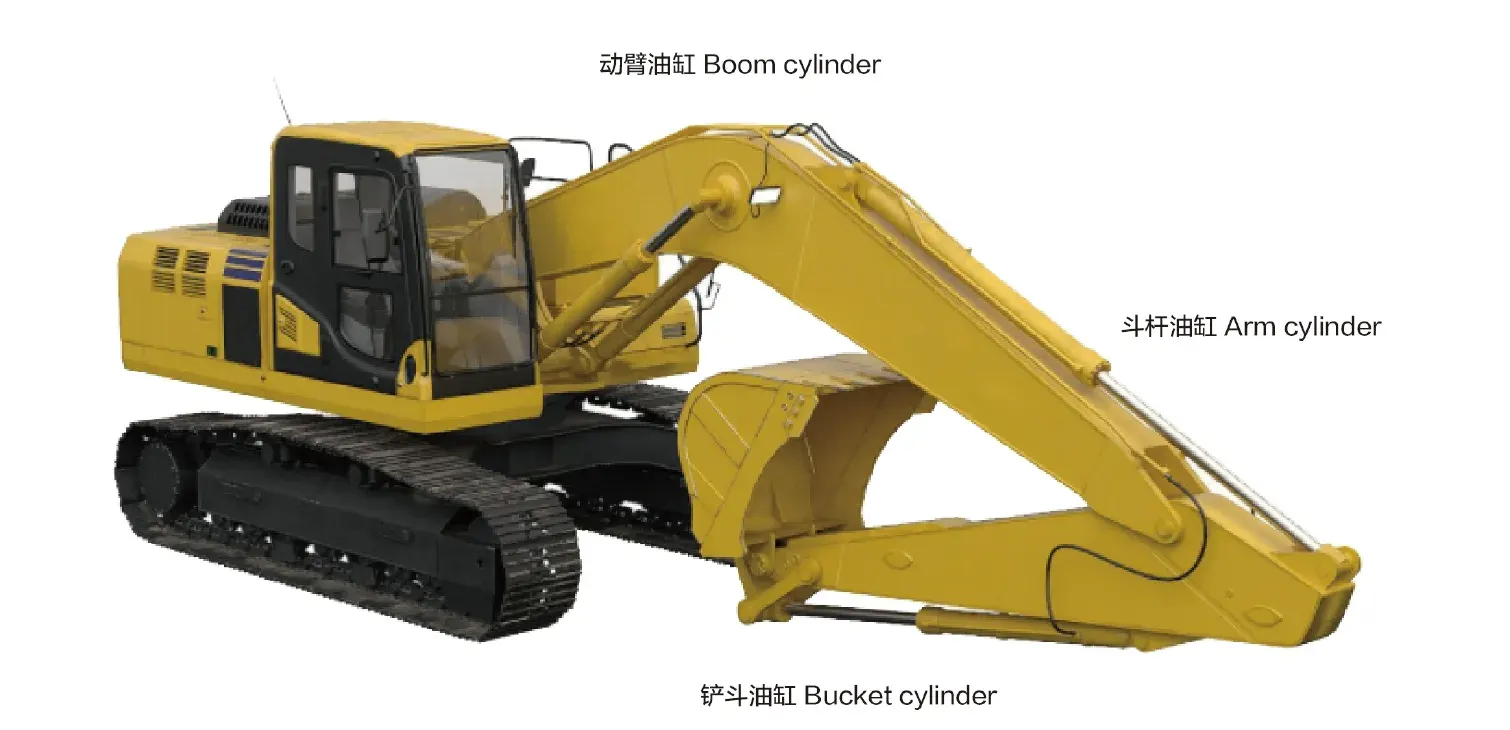
Features of the Product
- High Strength and Durability: Made from high-strength steel or aluminum, this boom cylinder is engineered to withstand high pressures and heavy loads while adapted to harsh working conditions. It is designed with wear resistance and corrosion resistance in mind, thereby extending its lifespan.
- Efficient Hydraulic Operation: Utilizing hydraulic oil pressure, it achieves smooth telescopic action, responding quickly to control commands to provide strong pushing and pulling forces suitable for handling heavy objects and complex tasks.
- Diverse Types Available: Options include single-acting (hydraulic used in one direction only) or double-acting (hydraulic used in both directions) cylinders to meet varying operational requirements. Some models are telescopic, allowing for greater extension without increasing external dimensions, ideal for space-constrained applications.
Production Capability
Our company specializes in manufacturing these hydraulic cylinders, ensuring that our products serve as perfect replacements for existing models.
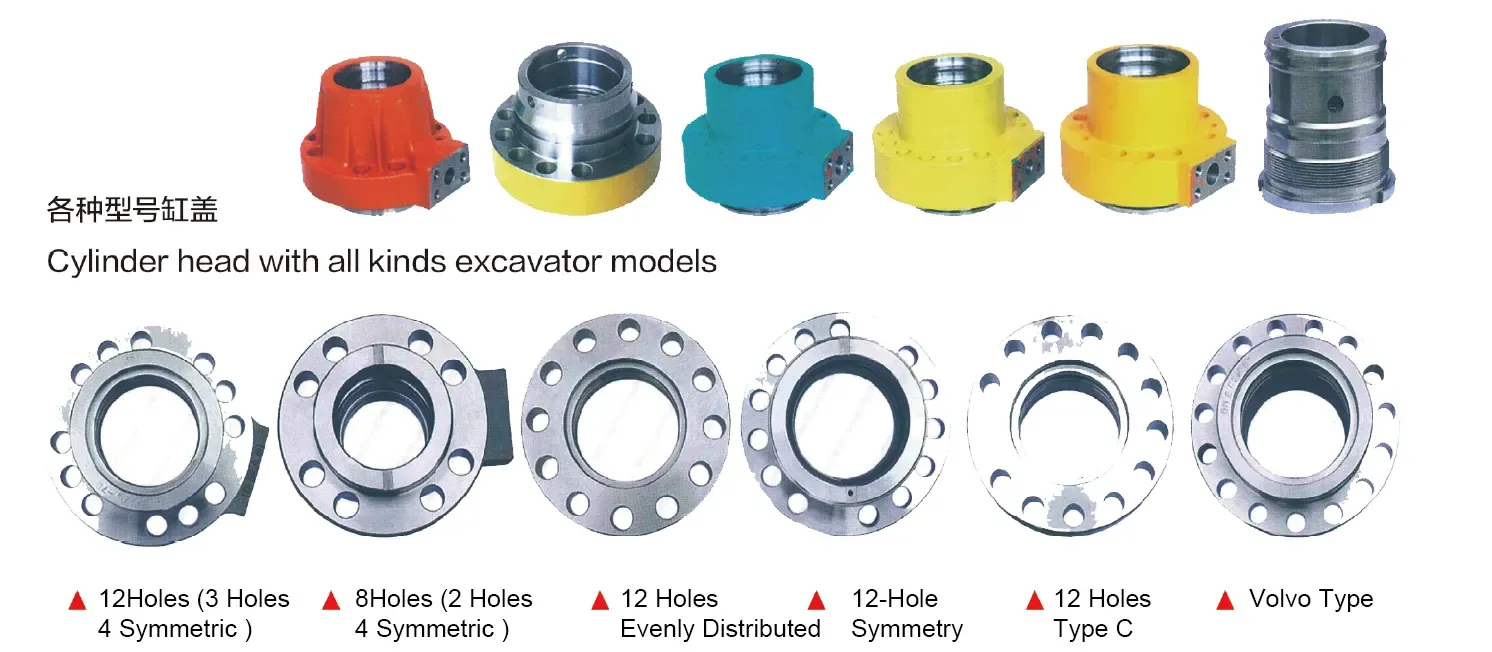
Applications of the Boom Cylinder
Construction Equipment
In excavators, the boom cylinder is essential for digging, loading, and moving soil or debris. It plays a critical role in both excavating and lifting in backhoe excavators, ensuring operational efficiency and precision in construction tasks.
Agricultural Machinery
Used in front-end loaders, boom cylinders are responsible for scooping, lifting, and transporting soil, hay, and other materials. Their robust design allows them to handle the demands of agricultural work effectively.
Excavators
The boom cylinder allows the excavator’s bucket to penetrate the earth, facilitating the digging process. Its precision and power enable operators to perform intricate tasks in various soil types.
Loaders
In front-end loaders, boom cylinders assist in lifting and tipping loads efficiently, making them essential for material handling in construction and agricultural settings.
Design Considerations and Selection Criteria
Load Capacity
The boom cylinder must be designed to handle significant loads without compromising safety or performance. Selecting a cylinder with the appropriate load capacity ensures reliability and longevity in demanding work environments.
Sealing
Effective sealing is critical for maintaining hydraulic pressure and preventing leakage. High-quality seals made from durable materials ensure the cylinder operates efficiently over time.
Durability
Materials used in manufacturing must resist wear and corrosion. This durability is essential for a long service life, especially in harsh conditions typical of construction sites.
Safety
Safety features should be integrated into the design to mitigate risks during operation. This includes pressure relief valves and sturdy construction to withstand unforeseen stresses.
Maintenance Accessibility
The design should facilitate easy maintenance, allowing for quick inspections and repairs. Accessible components reduce downtime and increase operational efficiency.
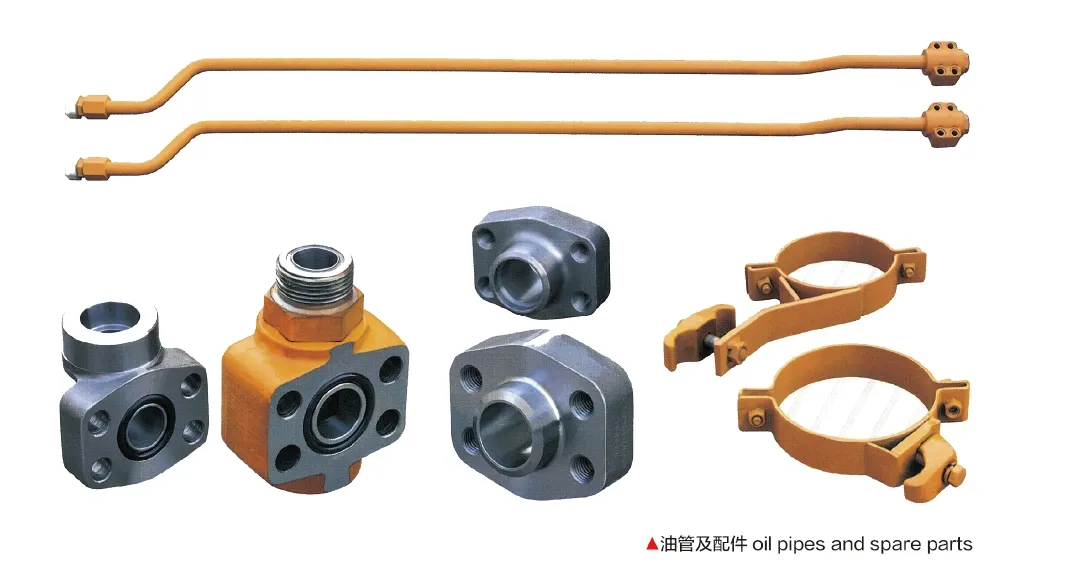
Sealing and Lubrication
Various seals, such as piston seals and rod seals, are employed to maintain hydraulic pressure and prevent leakage. Seals made from wear-resistant materials like polyurethane and nitrile rubber enhance durability. The cylinder body and threaded end surfaces are finely processed to improve wear resistance. Regular lubrication with hydraulic oil is essential to maintain smooth operation and prevent damage.
Regular Inspection and Preventive Maintenance
- Routine Inspections: Regular checks can detect potential issues early, such as leaks or unusual wear, allowing for timely maintenance.
- Proper Lubrication: Ensuring the cylinder is adequately lubricated reduces friction and wear, extending its service life.
- 更换密封件: Regularly replacing worn seals prevents hydraulic fluid leaks and maintains system efficiency.
Installation Guidelines
Correct installation of the boom cylinder is vital for optimal performance. Begin by ensuring that all components are clean and free from debris. Align the cylinder accurately with the mounting brackets and use appropriate mounting supports to secure it in place. Tighten all bolts to the manufacturer’s specified torque to prevent loosening during operation. After installation, perform a thorough test to confirm that the cylinder functions as intended, checking for any signs of leaks or abnormal operation.
Common Maintenance Tasks
- Regular Inspections: Frequent checks for leaks, wear, or damage are crucial. Proper alignment of the cylinder during installation is key to preventing operational issues.
- Appropriate Lubrication: Use the recommended hydraulic oil and apply it adequately to ensure smooth operation. This minimizes wear and prolongs the cylinder’s function.
- 更换密封件: Monitor seal integrity regularly and replace them as needed. This prevents hydraulic fluid loss and maintains system efficiency.
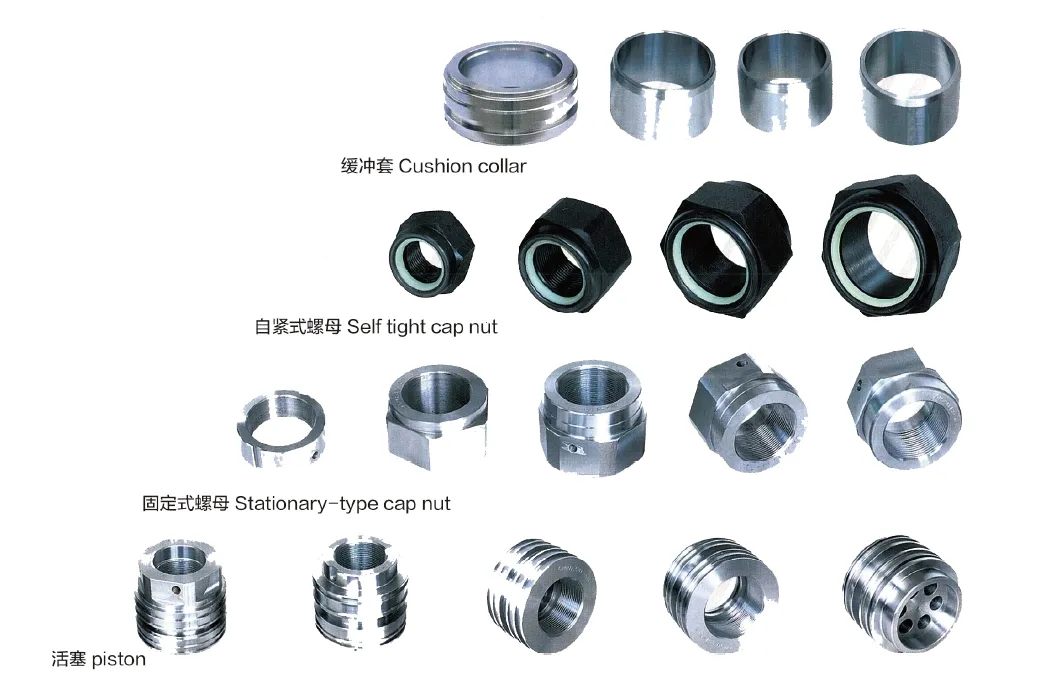
Safety Considerations and Environmental Factors
When utilizing boom cylinders, it is paramount to adhere to safety measures. Operators must be trained to recognize hazards associated with hydraulic systems, such as high-pressure situations or potential mechanical failures. Protective gear should be worn, and safety protocols must be strictly followed to mitigate risks. Additionally, environmental considerations, including proper disposal of hydraulic fluids and minimizing spills, are essential to protect ecosystems.
Fault Diagnosis and Common Issues
- Leakage: Commonly arises from worn seals or damaged fittings. Regular inspection can help identify leaks early.
- Poor Performance: This may indicate inadequate lubrication or low hydraulic fluid levels. Regular checks ensure the system operates at optimal levels.
- Unusual Noises: Grinding or hissing sounds could signal mechanical issues or air in the hydraulic lines, warranting immediate investigation.
Problem-Solving Tips
To effectively diagnose issues, maintain a log of any anomalies encountered during operation. Use this log to identify patterns that may indicate specific problems, allowing for targeted troubleshooting. For instance, if leakage is observed, inspect seals and fittings for damage and replace them as needed. Implement routine preventive maintenance measures to mitigate risks, such as regular lubrication and inspections, to decrease the likelihood of future issues.
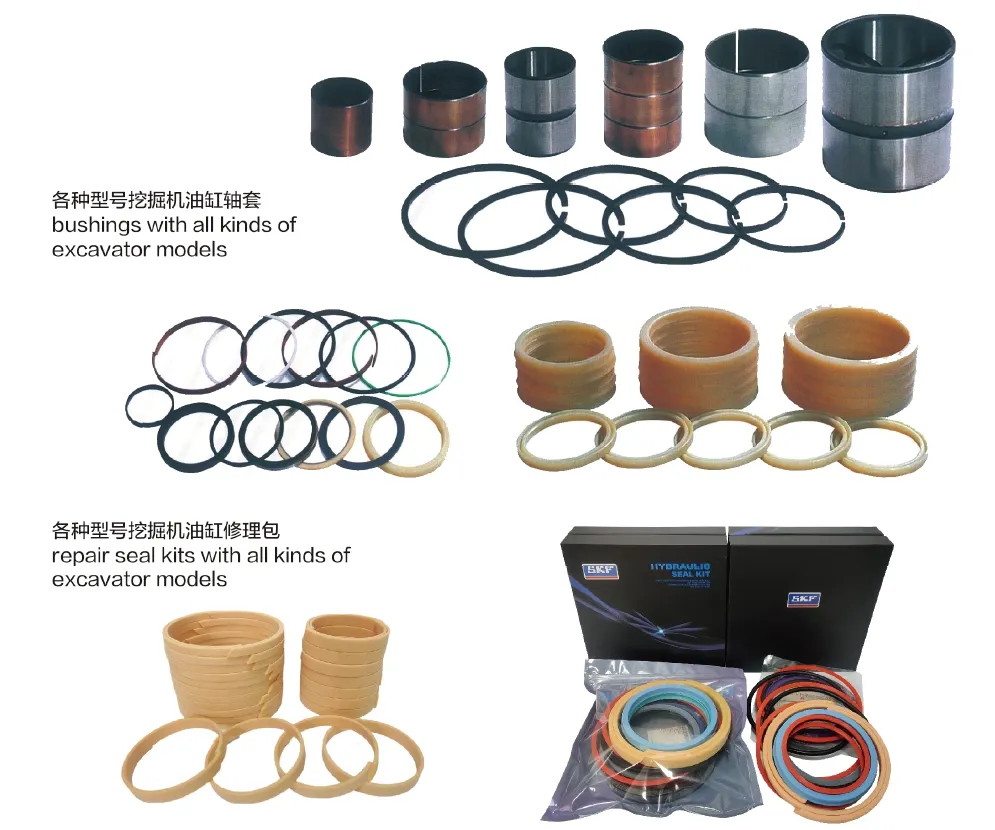
Company Overview
We are a leading manufacturer of replacement hydraulic cylinders, providing a comprehensive range of products to both domestic and international markets. Our commitment to excellence is evident in our rigorous production management strategies, leveraging advanced manufacturing technology and skilled personnel. With a strong emphasis on quality control, we ensure that every hydraulic cylinder meets the highest standards of performance and reliability.
Our product offerings are complemented by professional customization services, allowing us to meet unique client needs. We utilize state-of-the-art manufacturing equipment and maintain a robust after-sales service to support our customers effectively.
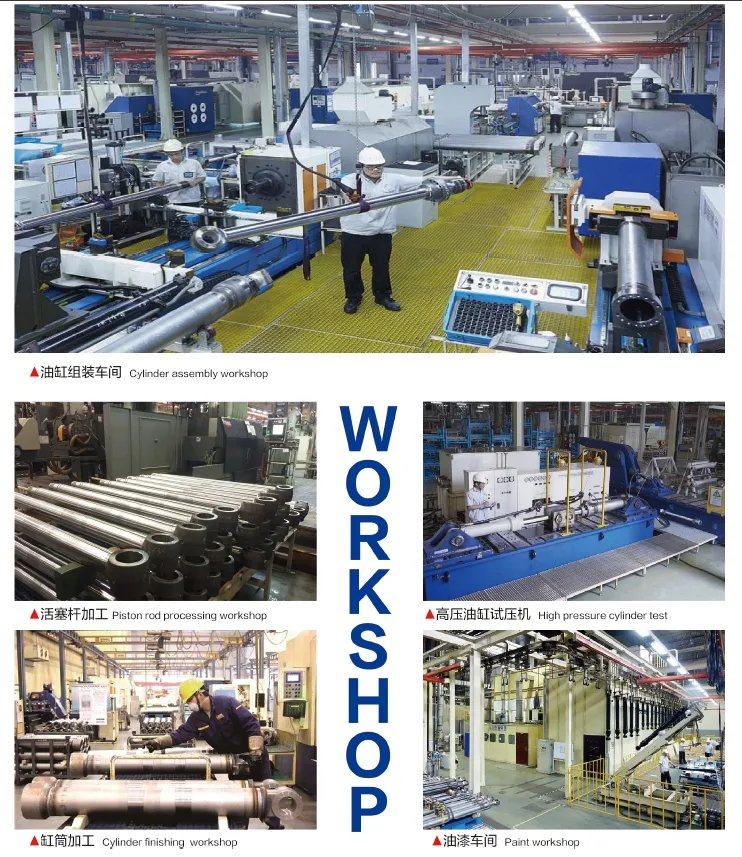
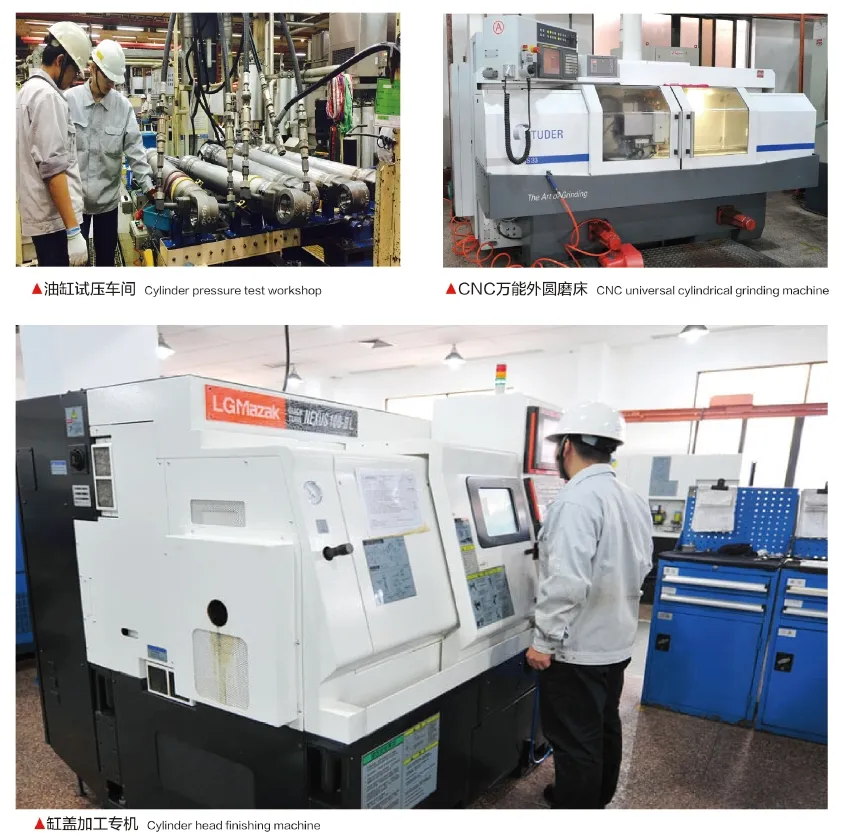
Author: lyl
参观我们的 VR 工厂
通过以下方式参观我们的 VR 工厂
液压缸应用:


